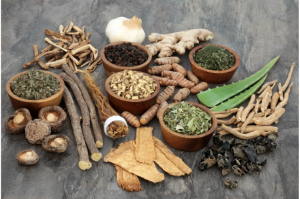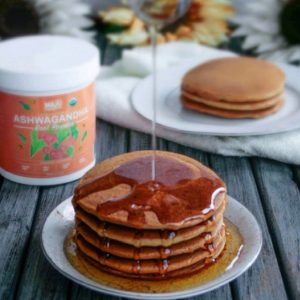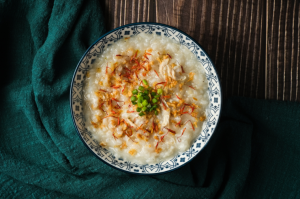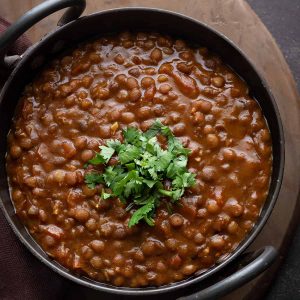Introduction
Every year, the onset of a new season offers a chance to rejoice and reflect on some old lifestyle and habits. As winter takes hold, the chilly wind is sending a message to the world to “Embrace nature.” The ancient wisdom of Ayurveda believes that winter affects every individual based on their doshas. The Vata dosha is most prominent during winter due to the transition. Therefore, people who have a vata constitution need to take extra care of themselves during the seasonal shifts. To help you combat the winter blues, we have handpicked some of the best working tips and winter self-care remedies to boost your energy. This winter is not a battle of surviving but thriving with an embracing mindset.Ayurvedic tips to stay healthy and happy in winter:
Living a healthy and happy life isn’t a gift. It’s a choice. A choice to work on creating habits that will bring you joy and peace of mind. Here are some of the ways you can make winter one of the most mesmerizing times of your year-1. Let Ayurveda herbs into your life!
 Ayurvedic herbs are known for their strong healing powers. An American neurosurgeon, Dr Gupta, recently discussed in an interview with the Times India the efficiency of Ayurvedic herbs in treating diabetes. You can also seek its benefits by introducing these herbs to your diet.
Ayurvedic herbs are known for their strong healing powers. An American neurosurgeon, Dr Gupta, recently discussed in an interview with the Times India the efficiency of Ayurvedic herbs in treating diabetes. You can also seek its benefits by introducing these herbs to your diet. - Tulsi- Tulsi leaves are known to fight viruses, infections, and allergies. Tulsi is thus an excellent ayurvedic herb for winter to add to your diet.
- Mint- It keeps seasonal allergies away and is rich in nutrients such as iron and vitamin C. Teas made from mint are also known to help cope with digestive issues naturally.
- Ginger- During winter, colds and coughs are common, but adding ginger to your tea can make you cold-proof.
- Turmeric- Turmeric lightens the liver workload, nourishes the heart, supports the comfortable movement of the joints, and strengthens digestion.
2. Plan a winter-friendly diet
Not every diet works for your body 365 days a year. The signs of cold and flu are winter’s call to reshuffle your diet. Here is what Ayurveda recommends to eat or not eat for a healthy winterWhat to eat?

- Consume ayurvedic warming foods that are properly cooked and spiced.
- Consumption of turmeric or golden milk daily can help to protect against the onset of cold and flu-like illnesses.
- Add some dairy products like milk and ghee to your diet
- Natural sweeteners are beneficial for vata consumption, such as honey, molasses, and jaggery.
- Including heavy fruits, such as avocados, can have advantages.
What not to eat?
- Avoid consuming white sugar, raw vegetables, iced drinks, and frozen foods like ice cream.
- Reduce the intake of barley, corn, millet, dry oats, popcorn, rice cakes or crackers, pork, and any leftovers.
- Avoid astringent fruits like pears, pomegranate, or dried fruits.
3. Embrace these lifestyle shifts
- Try not to nap during the day. Reserve some time in the evening to relax and unwind.
- Engaging in a greater variety of leg-enhancing postures, such as squatting, lunging, and warrior poses, can help you strengthen the muscles in the legs, which can have a positive effect on your mental health.
- By reducing your stimulant intake, you can help yourself reach a higher level of relaxation. Avoid consuming caffeinated drinks such as coffee that brings a sugar rush and depletes energy level.
- Massage your skin daily with Vata massage oil or sesame oil during the winter months.
- Make sure to incorporate some form of exercise into your daily routine, whether it be running, jogging, or some form of mindful movement like yoga.
Ayurvedic Recipes for Winter
This winter, give your taste buds a treat! We have listed some warm, ayurvedic winter recipes to keep you energized and in harmony with nature.Ashwagandha Pancakes

List of ingredients:
- Ashwagandha powder-2 tbsp
- Sesame seed powder- 4 tbsp
- Coconut sugar or jaggery-4 tbsp
- Water as required
- Ghee
- Urad dal powder-16 tbsp
Recipe:
To prepare the pancake batter, mix 2 tbsp ashwagandha powder with 4 tbsp sesame seed powder and 16 tbsp urad dal powder with 4 tbsp coconut sugar or jaggery. Now add a spoonful of water until the consistency becomes thin and achieves an apt pancake consistency. Heat a pan, add 1 tbsp of ghee, swirl the pancake batter, and spread it on the pan. Once it’s nice and brown, flip it over. Your pancake is ready to be served!Coconut Rice Porridge

List of ingredients:
- White basmati rice -½ cup
- 150ml water
- Milk-80 ml
- Cinnamon-½ tsp
- 2-3 pods of cardamom
- Coconut cream-2 tbsp
- Ground or grated nutmeg-¼ tsp
Masoor dal
 List of ingredients
List of ingredients- 1/2 cup masoor dal
- water
- 1/4 tsp turmeric powder
- rock salt as per requirement
- 1 tsp ghee
- 1/4 tsp cumin seeds
- few sprigs of cilantro

